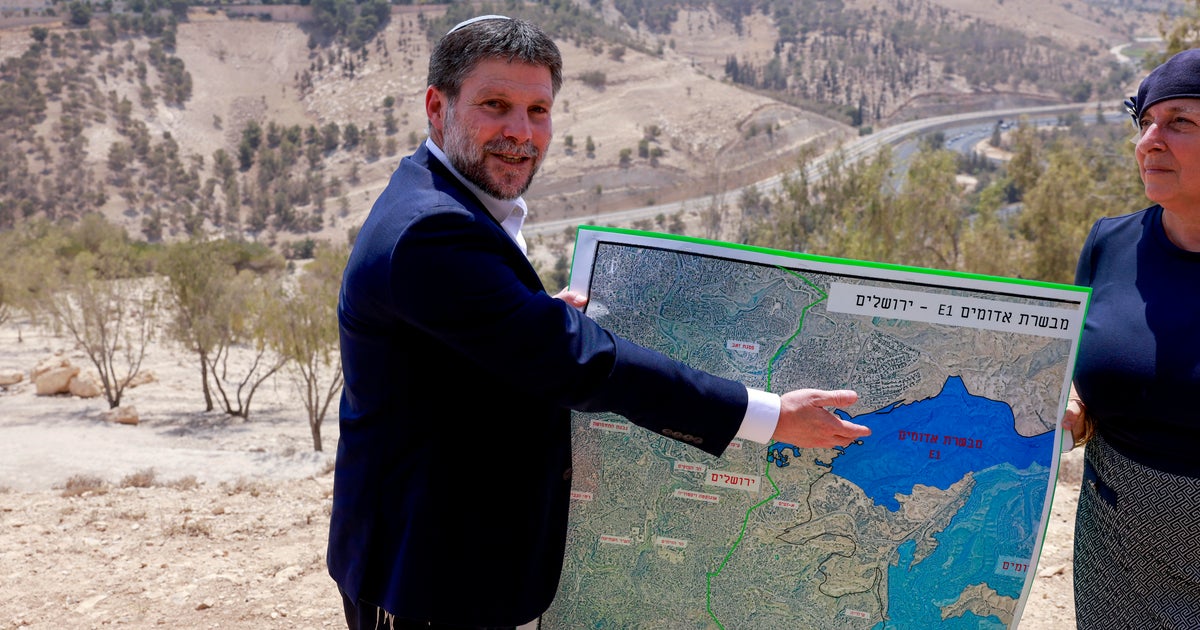New West Bank Settlements Threaten Palestinian Territory Contiguity
Proposed West Bank settlements threaten to divide the region, preventing a contiguous Palestinian territory and cutting off access to major cities like Bethlehem and Ramallah.
Subscribe to unlock this story
We really don't like cutting you off, but you've reached your monthly limit. At just $5/month, subscriptions are how we keep this project going. Start your free 7-day trial today!
Get StartedHave an account? Sign in
Overview
- New settlement plans are being considered for the West Bank, a move that could significantly alter the geopolitical landscape of the region and its future.
- These proposed settlements are designed in a way that would physically divide the West Bank, creating isolated pockets rather than a unified area.
- A primary consequence of this division is the prevention of a contiguous Palestinian territory, making the establishment of a unified Palestinian state challenging.
- The plans specifically threaten to sever access to vital Palestinian urban centers, including the historically significant cities of Bethlehem and Ramallah.
- This fragmentation would severely impede daily life and economic activity for Palestinians, further complicating any future negotiations for peace and statehood.
Report issue

Read both sides in 5 minutes each day
Analysis
Center-leaning sources frame this story by emphasizing the contentious nature and negative implications of the Israeli settlement for a future Palestinian state. They highlight international and Palestinian condemnation, portraying the action as a significant obstacle to peace and a two-state solution. The narrative focuses on the perceived defiance of Israeli officials and the broader context of expansionist policies.
Articles (7)
Center (3)
FAQ
The new settlements threaten to physically divide the West Bank into isolated pockets, preventing a contiguous Palestinian territory. This division complicates the establishment of a unified Palestinian state and severs access to key Palestinian cities like Bethlehem and Ramallah, impairing daily life and economic activities for Palestinians.
Since 2023, Israeli settlement expansion and settler violence have led to the displacement of tens of thousands of Palestinians, particularly in Area C of the West Bank. Over 40,000 Palestinians were forcibly displaced in 2025 alone amid settlement expansion, demolitions, and land seizures, marking the largest wave of displacement since 1967.
International law, including rulings by the International Court of Justice, considers Israeli settlements in the occupied West Bank unlawful and in breach of Palestinians' right to self-determination. The UN Human Rights Office has condemned the expansion as violating international law and called for halting settlement activities and evacuating settlers.
Settler violence has increased significantly, with extremist settlers carrying out hundreds of attacks in the first half of 2025, up from previous years. New settlements deep inside Palestinian areas have enabled far-right activists and settler youths to intensify their attacks, contributing to Palestinian displacement and instability.
The fragmentation of Palestinian territory and the displacement caused by settlement expansion severely hinder Palestinians' ability to maintain social and economic connections, disrupt daily life, and contribute to a deteriorating humanitarian crisis. The escalation in demolitions, forced displacement, and restricted access to urban centers exacerbate hardships and complicate peace prospects.
History
- This story does not have any previous versions.





